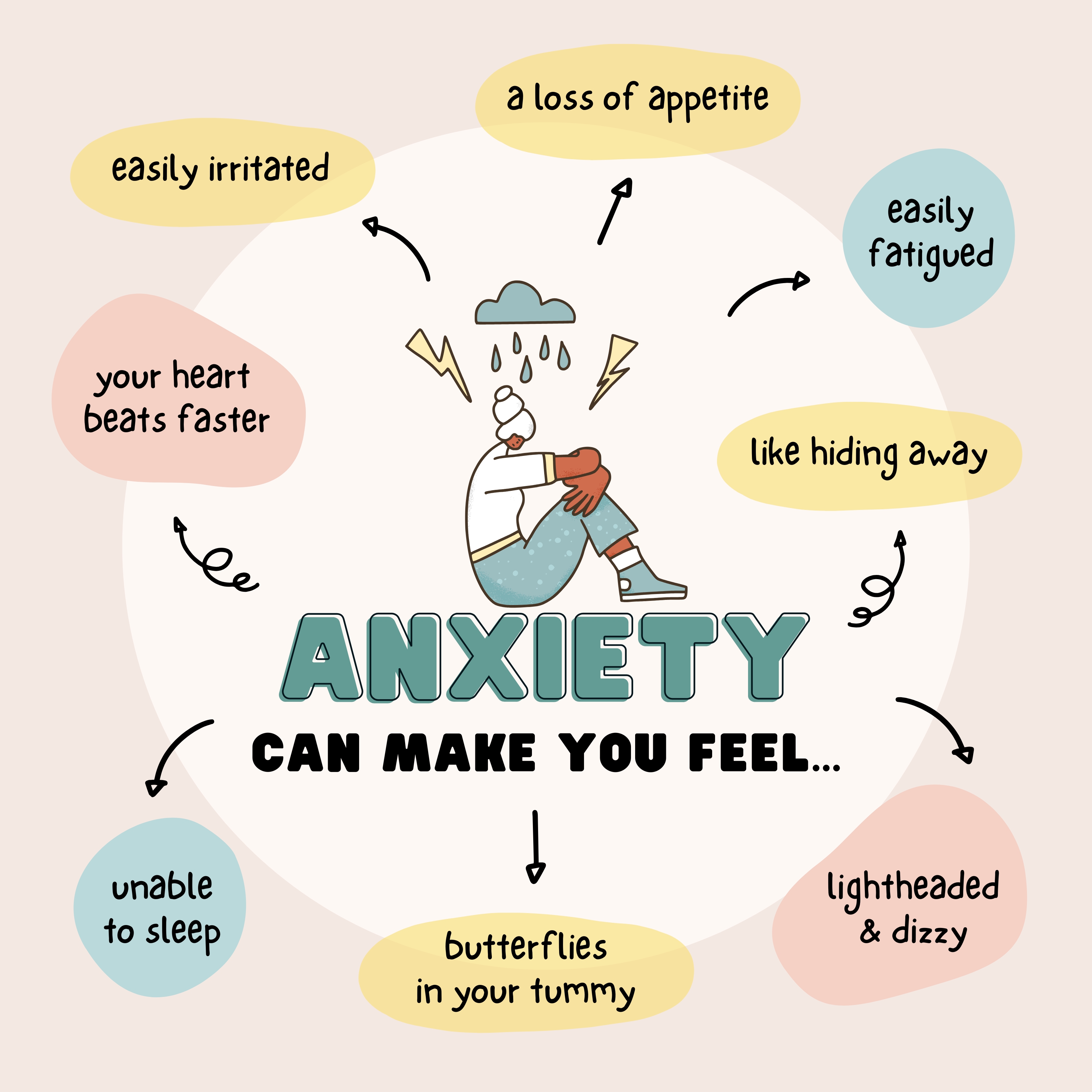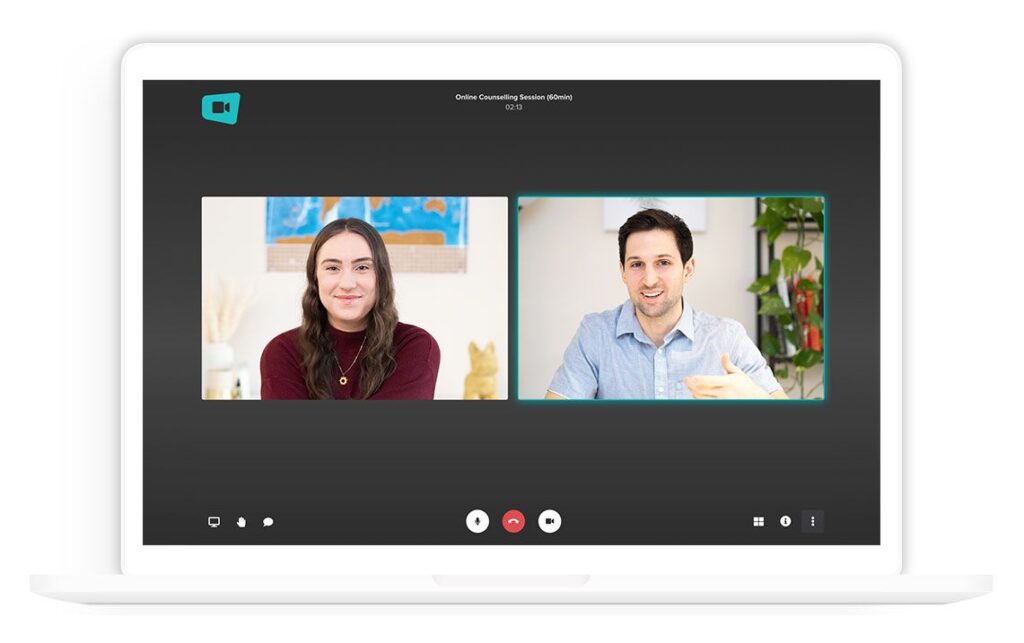Trusted counselling for anxiety disorder support by licensed therapists
Trusted counselling for anxiety disorder support by licensed therapists
Blog Article
Discovering Various Strategies in Therapy for Anxiousness Problem for Long-term Adjustment
When taking on stress and anxiety disorders, it's vital to explore a selection of counseling approaches. Each approach provides special insights and tools to assist you handle your signs and symptoms successfully. You might discover that integrating methods can produce the very best results. However, comprehending the nuances of these techniques is crucial to cultivating lasting modification. What happens if the best combination could launch a brand-new degree of emotional wellness for you?
Understanding Anxiousness Disorders: A Brief Overview
Anxiousness disorders, which impact millions of individuals worldwide, can substantially influence every day life. You may experience overwhelming sensations of anxiety or fret that seem irrepressible. These feelings can bring about physical symptoms like a racing heart, sweating, or perhaps dizziness. Common types of stress and anxiety conditions include generalized anxiety problem, panic condition, and social anxiousness problem. Each has unique indications, however they all share a tendency to interrupt your routine and relationships.Understanding the origin of your anxiety is crucial. It may stem from genes, brain chemistry, or life experiences. Identifying your triggers can aid you handle your reactions much better. It is essential to bear in mind that you're not the only one in this struggle. Lots of people encounter similar difficulties, and looking for help is a solid action towards feeling much better. By discovering anxiousness conditions, you're currently on the path to understanding and managing your problem much more properly.
Cognitive-Behavioral Treatment: Challenging Negative Idea Patterns
In Cognitive-Behavioral Treatment, you'll start by recognizing the adverse thought activates that add to your anxiety. You'll work on changing them with more positive choices as soon as you identify these thoughts. With each other, you'll build reliable coping methods to help manage your stress and anxiety in everyday circumstances.
Determining Adverse Idea Triggers

When you experience minutes of distress, recognizing the certain triggers behind your negative ideas can be important in handling stress and anxiety. Beginning by taking note of circumstances that prompt sensations of concern or fear. Is it a jampacked room, an approaching target date, or a conversation with specific people? Write these instances in a journal. This will certainly help you determine patterns in your thinking. Additionally, notice physical feelings that accompany your adverse thoughts, like a racing heart or rigidity in your upper body. By identifying these triggers, you obtain insight into what's fueling your anxiety. Comprehending these links is the primary step in testing those ideas and inevitably regaining control over your psychological responses.
Changing Ideas With Positives
Testing adverse thought patterns is an essential action in transforming your state of mind and decreasing stress and anxiety. You may often find on your own trapped in cycles of self-doubt or catastrophic thinking. Rather than allowing these thoughts dictate your sensations, practice replacing them with positive affirmations or reasonable choices. As an example, when you believe, "I can not manage this," move it to, "I can take care of obstacles one action at once." This easy change can significantly affect your mood. On a regular basis identifying and countering these negative ideas assists develop a much healthier internal discussion. Keep in mind, it takes time and effort, however regularly practicing this technique can cause enduring modification, empowering you to face anxiety with renewed confidence and resilience.
Building Coping Approaches With Each Other
Changing negative thoughts is only the start of taking care of stress and anxiety efficiently. To create long-term adjustment, you need to construct coping approaches that equip you. Cognitive-Behavioral Therapy (CBT) aids you identify and test those purposeless thought patterns. With each other, you and your counselor can explore just how these ideas effect your feelings and behaviors.Start by creating functional techniques, like journaling or mindfulness exercises, that allow you to challenge anxiety head-on. When you face your worries gradually, you'll discover to respond differently.
:max_bytes(150000):strip_icc()/generalized-anxiety-disorder-treatment-4171993-004f467a34c4479d8c50a74707e59477.png)
Mindfulness and Acceptance-Based Approaches: Growing Present-Moment Recognition
As you browse the complexities of anxiety, incorporating mindfulness and acceptance-based strategies can significantly enhance your capability to cultivate present-moment understanding. By focusing on the here and now, you'll discover that you can observe your ideas and sensations without judgment (Counseling services for anxiety). This technique helps you acknowledge your stress and anxiety without really feeling bewildered by it.Engaging in mindfulness exercises, such as deep breathing, body scans, or assisted meditations, allows you to ground yourself in your current experience. Acceptance-based strategies motivate you to accept your feelings instead than combat against them. When you accept your sensations, they lose their power over you.Incorporating these practices right into your day-to-day regimen can change exactly how you react to stress and anxiety. You'll establish durability and discover to navigate difficult situations with greater ease. Inevitably, cultivating present-moment recognition lays the foundation for long-term change, empowering you to lead an extra meeting life
Direct Exposure Therapy: Challenging Anxieties Gradually
Direct exposure therapy helps you face your fears in a progressive method, making it less overwhelming. You'll find out methods to encounter anxiety-provoking situations detailed, while additionally developing coping strategies to manage your responses. This technique empowers you to take control and minimize anxiousness in time.
Gradual Direct Exposure Techniques

When facing anxiousness, progressively confronting your anxieties can be an effective way to gain back control. This technique, referred to as gradual exposure, includes gradually exposing yourself to the situations or things that trigger your stress and anxiety. Begin with much less intimidating circumstances and gradually work your way up to even more difficult ones. If you're worried of public talking, you might begin by talking in front of a mirror, after that advance to sharing thoughts with a good friend, and at some point attend to a tiny team. Each action assists desensitize you to the fear, developing your self-confidence gradually. Remember, it's vital to speed yourself and celebrate small triumphes as you relocate via this process, reinforcing your capacity to take care of anxiety effectively.
Structure Coping Techniques
Structure efficient coping techniques is necessary for taking care of stress and anxiety, particularly as you confront your worries gradually - Counseling services for anxiety. One powerful technique is direct exposure therapy, where you start by encountering your fears in a regulated manner. Begin with much less daunting circumstances and slowly function your way up to even more difficult situations. This gradual exposure helps desensitize you to anxiety causes, making them less overwhelming.Incorporate leisure methods, such as deep breathing or mindfulness, to soothe your mind during direct exposure. Track your progress, celebrating tiny victories in the process to increase your self-confidence. Keep in counselling for anxiety disorder mind, it's alright to take your time; the objective isn't perfection however steady improvement. By constructing these strategies, you'll equip on your own to navigate anxiety and accept life extra fully
Psychodynamic Treatment: Uncovering Source of Anxiousness
Psychodynamic treatment discovers the unconscious mind, exposing the origin of your anxiousness. By analyzing your ideas, sensations, and past experiences, this method helps you discover underlying disputes and unsolved concerns that may add to your current stress and anxiety. You'll deal with a specialist to examine childhood experiences, relationships, and psychological patterns that shape your feedbacks today.As you obtain insight right into these deeper layers of your psyche, you'll start to identify exactly how past events affect your present habits. This understanding can bring about catharsis, enabling you to refine feelings you might have suppressed.Through the healing connection, you can likewise determine defense reaction that might have created gradually, providing a clearer course to transform. Inevitably, psychodynamic treatment equips you with the devices to address your anxiousness at its core, promoting long-term improvement in your emotional well-being.
Integrative and Holistic Techniques: Combining Strategies for Greater Effectiveness
Incorporating various healing methods can enhance your trip towards managing stress and anxiety a lot more efficiently. By integrating elements from cognitive-behavioral therapy, mindfulness techniques, and holistic strategies, you can produce an individualized approach that resolves your one-of-a-kind requirements. You might make use of cognitive-behavioral techniques to test negative thought patterns while incorporating mindfulness workouts to ground yourself in the present moment.Additionally, checking out alternative methods such as yoga exercise or reflection can advertise relaxation and reduce anxiety signs and symptoms. This blend allows you to create greater self-awareness and resilience.Experimenting with these varied techniques can help you find what resonates most with you. Remember, it has to do with locating a harmony that functions, rather than adhering to a solitary strategy. This integrative method not only supplies prompt relief however likewise fosters long-term skills for handling anxiety, empowering you to reclaim control over your life.
The Duty of Support Equipments: Building Strength Through Connection
While it could seem that handling stress and anxiety is a solitary trip, having a strong support group can play a necessary role in your strength. Bordering on your own with understanding friends, family members, or assistance teams develops a secure space where you can openly share your experiences and feelings. When you get in touch with others, you advise yourself that you're not alone in this struggle.These relationships provide encouragement and can offer useful coping strategies that have worked for others. It's also a chance to acquire viewpoint; close friends can help you see circumstances in a different way, minimizing feelings of isolation.Moreover, emotional support promotes a sense of belonging, which can significantly minimize anxiousness symptoms. By leaning on your assistance system, you can develop resilience and deal with difficulties more successfully. Bear in mind, connecting for aid is a sign of stamina, and it can make all the difference in your trip towards managing anxiety.
Regularly Asked Concerns
What Are the Typical Signs And Symptoms of Anxiety Problems?
You might experience restlessness, tiredness, difficulty concentrating, irritation, muscle mass stress, and sleep disturbances. Physical signs and symptoms can include quick heartbeat, sweating, and trembling. Acknowledging these indicators early can aid you seek appropriate support and therapy.
For How Long Does Therapy Generally Last for Anxiety Disorders?
Treatment for anxiety conditions commonly lasts anywhere from a couple of weeks to numerous months. It truly depends on your private needs, progression, and the strategies your therapist makes use of to help you manage your anxiety effectively.
Can Medication Be Used Together With Therapy for Anxiousness?
Yes, medicine can certainly be used together with therapy for anxiety. Combining both techniques commonly enhances therapy effectiveness, aiding you manage signs and symptoms while discovering underlying problems through therapy (Counseling services for anxiety). Constantly consult your health care supplier for customized advice
Exist Self-Help Approaches for Taking Care Of Anxiety?
Yes, there are several self-help strategies for taking care of anxiety. You can exercise mindfulness, participate in normal exercise, keep a balanced diet regimen, establish a routine, and use deep breathing techniques to help in reducing stress and anxiety symptoms successfully.
Just how Do I Know if I Need Expert Aid for Anxiety?

Report this page